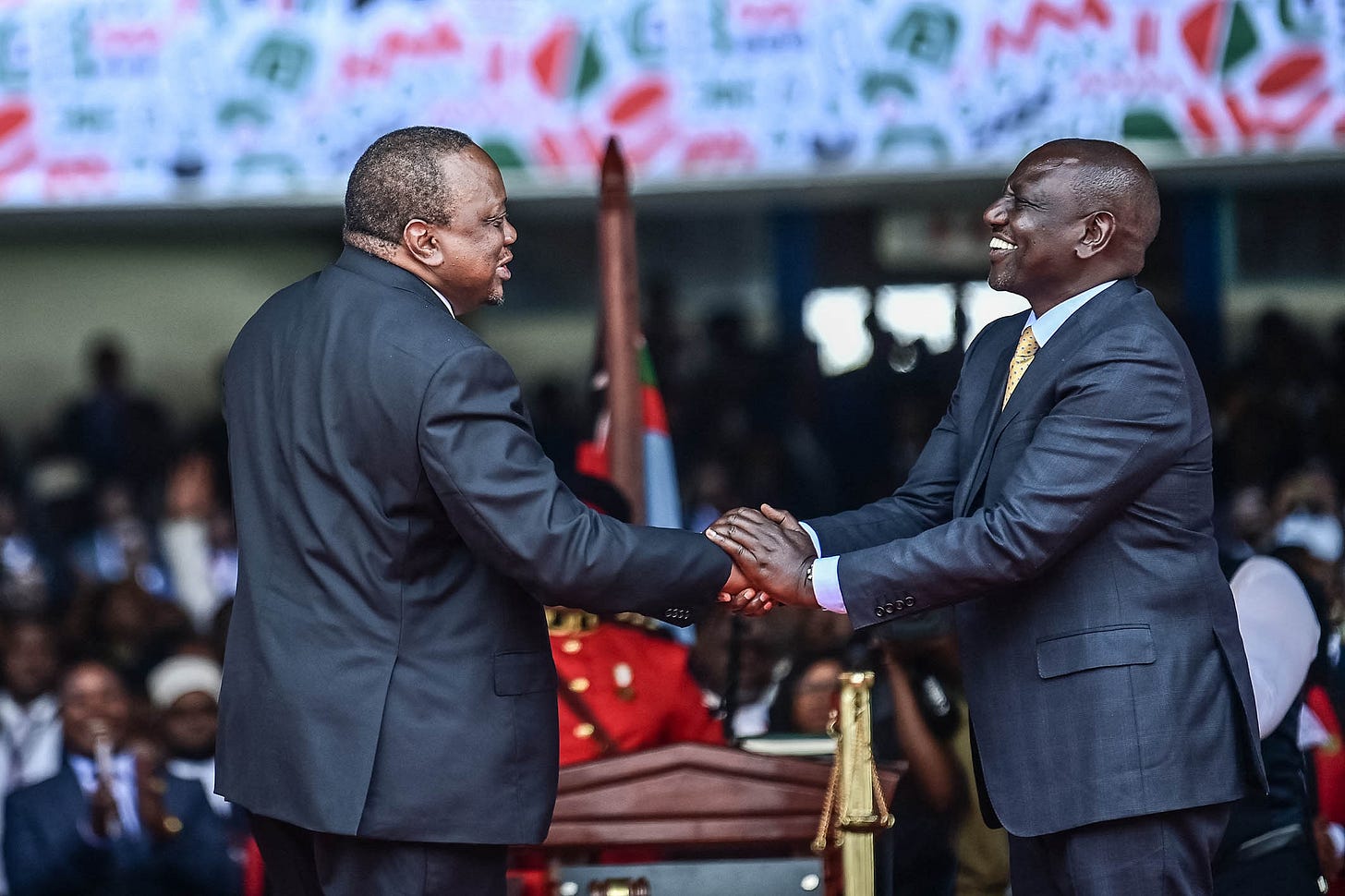William Ruto: Less hustle, chief
Catherine Amayi
‘Hustler’ can mean a go-getter who brims with energy and enterprise. It can also mean swindler, con-man or crook. In his first year of office, Kenya’s self-proclaimed hustler-in-chief William Ruto seems to have turned his thesaurus into a check-list.
On the world stage, President William Ruto has positioned himself as the voice of Africa, speaking boldly on issues such as climate change, the dollar supremacy, and unequal partnerships between the Global North and Global South.
But in unobserved boardrooms, Mr Hustler is a darling of the Bretton Woods institutions, because he has commodified everything. Kenya is his hustle and the rewards are big: luxury foreign trips; a tripled budget for his spouse; alleged bribes for lawmakers; a refurbishment of the statehouse to his taste; and $50,000 watches strapped to his wrist.
His position on climate change is telling.
No expense has been spared in his quest to position himself as Kenya’s own Greta Thunberg. He religiously attends climate events and hosted Africa’s first climate week, to which he drove an electric car. He also calls out big polluters; initiated a national tree-planting day; has promised a 100% renewable energy grid by the year 2030; and called for a global “carbon tax” campaign.
But peel away the veneer and you will find that Ruto has also downplayed the idea of climate change as an existential threat, instead steering the conversation towards seeing it as “an opportunity”.
In particular, he sees in carbon credits a way to profit off of Kenya’s nature, with millions of hectares of forested allocated to foreigners in secret agreements. All he has to do is get Kenyans off their land.
If you take his self-branding literally, he is supposed to be the poor folks’ president. Instead 70,000 jobs, and countless small businesses have sunk in his year in office.
Ruto has outpaced his predecessor Uhuru Kenyatta by borrowing twice as much in his first eight months in office and the Kenyan shilling has depreciated to a historic low.
His “Hustler Fund”, a microloan programme for micro-enterprises, reportedly stacked up defaults of 9.9-billion shillings ($61.5-million) in its first 11 months; a tab the Kenyan taxpayer will have to pick up.
Confronted with the reality of his fiscal brutality, Kenyans now commonly refer to Ruto as “Zakayo”, after the Biblical tax collector Zacchaeus, because as the national accounts got redder, he simply introduced new taxes or levies.
Scholars termed his plan to take another 1.5% of people’s income in a new housing levy “a raid on people’s pockets.” Judges have tended to agree, with both the high court and court of appeal ruling against it.
Maybe then it is his brand as “God’s chosen leader” that is authentic?
To understand Ruto’s ideological leanings, recall his political lineage.
In 1992, the Youth for Kanu entity (YK’92) delivered a re-election for strongman Daniel Arap Moi in one of Kenya’s bloodiest and most fraudulent elections.
Ruto, then leader of YK’92, secured the political future of his mentor. But that foundation set him on a violent path that culminated in charges at the ICC for his role in the massacres that followed the 2007 elections. At home, his association with Christian fundamentalists is critical to laundering that image.
Abroad, Ruto woos the very empire that would not touch him with a 10-foot pole a decade ago by signing up for every neoliberal project sent his way. He is happy to export labour even to exploitative or racist destinations like Israel, Lebanon, Saudi Arabia, UAE and Germany. He can always tell his Bretton Woods friends of the remittances generated by shipping off Kenyan nurses, as hospitals across the country suffer staff shortages.
Ruto has mastered Machiavellianism and continues to use every tool at his disposal for his political survival. This is why he has outlasted most in Kenya’s political scene and successfully rebranded from his ICC charges, both at home and abroad. Whatever it takes – from smearing his peers to speaking as an ally of the Global South while selling his country out to capital – Ruto will do it.
And Ruto’s hustle might very well work – for him, and him alone.





